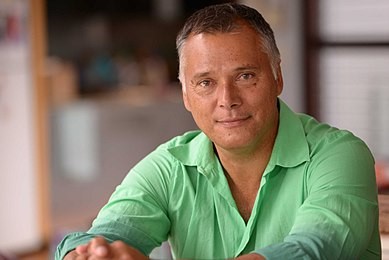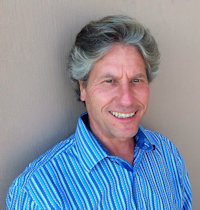Talking to My Country
from amazon.com
An extraordinarily powerful and personal meditation on race, culture, and identity. When Stan Grant was born in Australia in 1963, the national census classed him and his family among the country’s flora and fauna. As Aboriginal Australians, their history and culture had been suppressed for centuries. A legacy of racism stood between him and the opportunities that white Australia - the so-called Lucky County - seemed awash with.
But Grant was lucky enough to find an escape route through education. Finding early inspiration in the writing of James Baldwin and fellow indigenous activists at the Australian National University, on completing his studies he went on to become one of the country's leading journalists.
As a correspondent for CNN he travelled extensively, covering conflicts in the Middle East, Africa, and Asia. Struck by how common humanity can live on in the face of repression and mass destruction - from North Korea to Pakistan to Baghdad - the lives of individuals he met spoke to him of sacrifice, endurance, and the undying call of family and homeland. And in the stories of other dispossessed peoples, he saw that of his own.
In Talking To My Country, Grant draws on his own life and community to respond to the ongoing racism that he sees around him. He writes with passion and striking candour of the sorrow, shame, anger, and hardship of being an indigenous man. Forthright and unblinking, Stan reaches beyond his own heritage to show how the effects of colonialism and racism are everyday realities that still shape our world, and how we should never grow complacent in the fight to overcome them.
https://www.amazon.com/Talking-My-Country-Stan-Grant-ebook/dp/B01HDQA9BS
Author: Stan Grant

Reviewed by: John Stokdijk

Talking To My Country by Stan Grant are the words of a Black Aboriginal addressed to his country, Australia. Why would I, a retired Canadian living in Mexico, be interested in this book? It is because I know that Grant’s message would be the same if delivered by someone from a First Nation in Canada to someone like me, a white man. Slowly, very slowly over many years, I have become aware that I am a beneficiary of the wars of the conquest of North America by the Spanish, English and French. The words of Stan Grant are words that I should take personally.
Here is how we – indigenous people – see the Australian dream: here’s the worst of it. Aborigines rounded up and shot, babies buried into the sand and decapitated, women raped, men killed as they hid in the forks of trees, waterholes poisoned, flour laced with arsenic. The Australian dream abandoned us to rot on government missions, tore apart families, condemned us to poverty.
White people themselves were not the problem, the problem was a system built on white privilege.
I was a beneficiary of that system and I was blind to that fact most of my life.
Stan Grant researched his ancestry in considerable and colorful detail, including the origin of his European name.
John Grant, convict, was brought here and founded a dynasty… He died the wealthiest Irish Catholic in the colonies.
The story of Grant’s grandmother was equally fascinating.
Ivy Sutton was as white as a white person can be. She had blue eyes and blonde hair. Her background was German on her father’s side… When she was fourteen Ivy was thrown out of home… So Ivy moved in (with a Black man) that night and stayed more than twenty years, raising nine children and burying three more. I am stunned today at the audacity of my grandmother.
Sadly, the Australian story and the Canadian story are essentially the same.
My people are fewer than three per cent of the Australian population yet we are a quarter of the prison population… Jails breed depression and suicide… Over and over people are trapped in a cycle of violence, drugs and alcohol, mental illness, sexual abuse, unemployment and abject poverty.
The Canadian story was only vaguely known by most Canadians, including me, until 2008 when the Truth and Reconciliation Commission of Canada was established. First Nations issues then became frequent front page news. In 2015 a report with 94 calls to action was tabled. The CBC tracks progress and “As of March 2018, 10 were marked as completed, 15 were in-progress with projects underway, 25 had projects proposed, and 44 were unmet.”
As I reflect on this, I realize that I know not a single person from a Canadian First Nation. I do not know who the Canadian equivalent of Stan Grant is. But he has done much more than talk to his own country.
